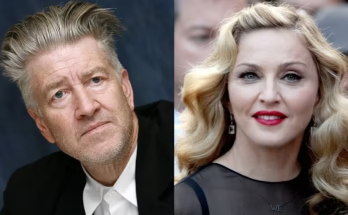Madonna, one of the most iconic and controversial figures in pop culture, has always found herself at the center of attention for both her bold artistic expressions and personal endeavors. In 2006, she became embroiled in a storm of controversy after adopting David Banda, a four-year-old boy from Malawi. At the time, the adoption was celebrated by some as an act of compassion and charity, but it soon sparked an intense debate about the ethics of international adoption. Critics raised concerns over the possible exploitation of vulnerable children, pointing to broader issues of child trafficking and the ways in which wealth and celebrity influence the adoption process.
The adoption of David Banda not only attracted global attention but also shed light on the complexities surrounding international adoption, particularly from impoverished countries. While Madonna’s motives were framed as philanthropic, the incident brought to the forefront uncomfortable questions about the vulnerability of children in nations like Malawi, where poverty and the AIDS epidemic have left many orphaned. Madonna’s high-profile position fueled skepticism among critics who wondered whether her celebrity status gave her an unfair advantage in the adoption process, ultimately raising concerns about exploitation and ethical boundaries.
This article will delve into the circumstances of Madonna’s adoption of David Banda, examining the criticism she faced and the broader issues related to child trafficking in international adoption. We will explore how this case became emblematic of a larger conversation about the ethics of adopting children from impoverished regions and the potential for exploitation when the wealthy and famous are involved in such sensitive matters.
At the time of her adoption, Madonna was actively promoting her charity, Raising Malawi, an organization she founded to provide support and education to children in Malawi. Through her efforts, Madonna hoped to shine a spotlight on the severe poverty and the overwhelming number of orphans in the country, many of whom had been affected by the AIDS crisis. However, her personal decision to adopt David raised questions about whether the adoption was driven by genuine humanitarian concern or if it had been influenced by her star power and access to resources that most people would never have.
The controversy surrounding Madonna’s decision highlighted the complexities of international adoption, where well-meaning efforts to help can sometimes blur the lines between charity and exploitation. As the debate over the ethics of her adoption continues, it serves as a reminder of the delicate balance between helping vulnerable children and ensuring that the adoption process is transparent, ethical, and free from potential abuses.
Through this exploration, we gain insight into the challenges that come with international adoptions, especially when celebrity figures are involved. Madonna’s adoption of David Banda remains a touchstone in the ongoing discussion about the responsibility that comes with adopting children from marginalized communities and the need for reforms in the international adoption system to protect children from exploitation.



